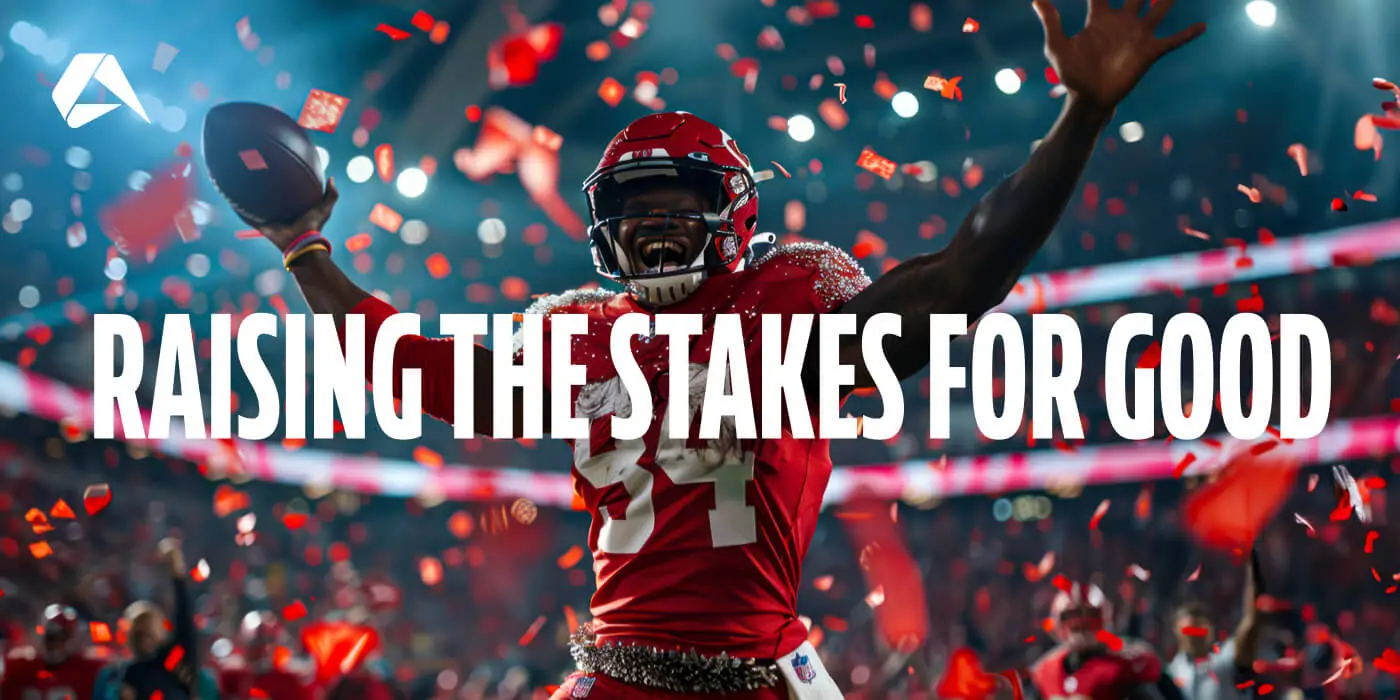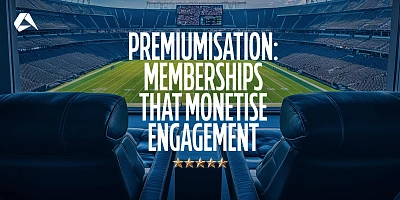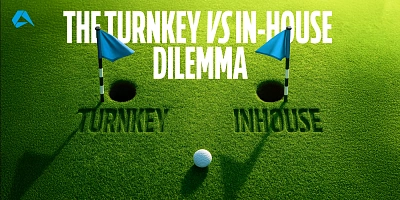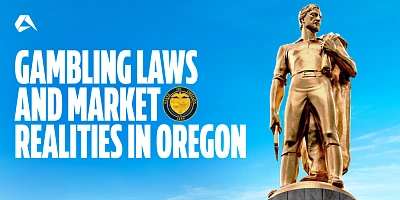Responsible gambling is a hot topic in today’s iGaming industry, but are the organizations leading the way making a real difference? Operators face mounting pressure to demonstrate compliance, yet skepticism in some quarters lingers over whether these initiatives actually prioritize player safety or merely serve as a buffer against regulatory scrutiny.
This article examines the key players shaping responsible gambling, the initiatives driving industry-wide change, and the debates surrounding their effectiveness. In a sector built on trust and regulation, understanding who truly safeguards players and who just says they do is essential.
What Do Responsible Gambling Organizations Stand For?
Responsible gambling organizations exist to promote safe gaming environments, ensuring that gambling remains a form of entertainment rather than a source of harm. Their mission revolves around player protection, ethical gaming standards, and social responsibility, working alongside regulators, operators, and support services to implement best practices.
Harm prevention is at the core of their efforts, with initiatives such as self-exclusion schemes, deposit limits, and affordability checks helping players maintain control. Many also invest in education and awareness, ensuring that individuals can recognize the risks and access support when needed. Organizations such as GamCare, the Responsible Gambling Council, and the National Council on Problem Gambling also provide helplines, counseling services, and research-driven solutions to address gambling-related harm.
Ethical conduct is another central duty. Responsible gambling organizations advocate for transparency, fair advertising, and policies that protect vulnerable players. They work to influence legislation and industry standards and ensure that operators integrate meaningful and safe gambling measures into their platforms.
Beyond regulatory compliance, these organizations extend their impact into the community, funding research, supporting treatment programs, and driving initiatives that promote long-term harm reduction.
Is Responsible Gambling More Than a Marketing Strategy?
For years, operators have pledged their commitment to responsible gambling, embedding it in corporate messaging, compliance reports, and industry events. But how much of it is meaningful action, and how much is just PR?
Skeptics argue that responsible gambling initiatives often serve as a convenient shield against regulatory crackdowns. High-profile campaigns and self-regulation efforts may present a polished image of corporate responsibility, but do they genuinely reduce gambling-related harm? Adding weight to this argument, a 2023 media analysis by Commetric found that much of the responsible gambling conversation is driven by corporate messaging rather than independent research or impact assessments.
That said, meaningful efforts do exist. Self-exclusion schemes, real-time behavioral tracking, and affordability checks have given players greater control over their gambling habits. However, the effectiveness of these tools depends on how actively they are promoted and enforced.
Ultimately, responsible gambling should be judged not by industry statements but by hard data. How many at-risk players are really using these tools? Are problem gambling rates declining where responsible gambling measures are mandated? Until there is greater transparency, operators risk being seen as paying lip service to a concept that should be at the core of their business.
Who Are the Biggest Players?
Globally responsible gambling pioneers set the benchmark for player protection, harm prevention, and industry standards. These organizations have extensive reach and influence policy, fund research, and develop best practices that shape the future of responsible gaming worldwide, extending their impact beyond national borders:
GamCare (UK-based, global influence)
Established in 1997, GamCare has grown into a leading voice for responsible gambling, actively supporting those affected by gambling harm throughout the UK. The charity operates the confidential National Gambling Helpline, which is available around the clock. It also works closely with gambling operators, offering targeted training programs and vital resources. GamCare's highly respected Safer Gambling Standard certification sets a benchmark for operator accountability, encouraging the adoption of responsible gaming practices across the entire iGaming sector.
Tools, Technology, and Resources Offered:
-
National Gambling Helpline (24/7 confidential support)
-
Safer Gambling Standard certification
-
Specialized training programs for iGaming professionals
GambleAware (UK-based, global influence)
Established as an independent charity, GambleAware is another top institution at the heart of Britain’s drive towards safer gambling. The organization proactively funds research and education programs, shaping policies that reduce gambling-related harms. Through the 24-hour National Gambling Helpline, it offers immediate, confidential support nationwide. Operators benefit from GambleAware’s resources, including innovative gambling-blocking tools and spend calculators, which empower players to take control and give the industry clear guidance on effectively implementing responsible gambling practices.
Tools, Technology, and Resources Offered:
-
National Gambling Helpline (24/7 support)
-
Gambling spend calculator
-
Gambling blocking software
Best-Practice Recommendations for Operators:
-
Comprehensive player self-exclusion systems
-
Provision of gambling management tools
-
Clear and prominent communication of support services
BeGambleAware (UK-based, national influence)
BeGambleAware is GambleAware's public-facing initiative, acting as an accessible gateway for players seeking information, support, and self-help tools. While GambleAware focuses on funding research, education, and treatment, it typically plays a more direct role in guiding individuals toward practical solutions for gambling-related issues.
The BeGambleAware website is at the heart of its mission. It offers players immediate access to responsible gambling tools, including self-assessment tests, self-exclusion resources, and tailored advice. The platform also connects users with treatment providers, helplines, and NHS-backed services, ensuring professional support is within reach.
One of its most visible contributions is high-profile awareness campaigns, including messaging featured across sports sponsorships, advertising banners, and television broadcasts. By integrating safer gambling messages directly into mainstream media, BeGambleAware has played a key role in shaping public attitudes toward responsible gambling.
Tools, Technology, and Resources Offered:
-
National Gambling Helpline (24/7 support)
-
Self-exclusion schemes and referral services
-
BeGambleAware.org (educational resources & player tools)
Best-Practice Recommendations for Operators:
-
Clear, visible signposting to responsible gambling tools
-
Proactive promotion of self-exclusion and deposit limits
-
Integration of messaging in marketing and branding
International Center for Responsible Gaming (ICRG) (US-based, global reach)
Since its formation in 1996, the International Center for Responsible Gaming has been at the forefront of scientific research into gambling-related harm, working tirelessly to shape industry standards and public policy. With nearly $40 million invested in independent studies, the ICRG has deepened our understanding of gambling addiction, player risk factors, and effective harm-reduction strategies. Its research-backed insights have helped operators refine responsible gaming policies and develop training programs that equip staff to recognize and address gambling-related risks.
Tools, Technology, and Resources Offered:
-
Groundbreaking studies on gambling harm
-
Educational webinars and industry training resources
-
Practical guidance for policymakers and operators
Best-Practice Recommendations for Operators:
-
Train staff to identify and manage problem gambling indicators
-
Collaborate with researchers to stay ahead of emerging risks
Responsible Gambling Council (RGC) (Canada-based, international impact)
Founded in 1983, the Responsible Gambling Council has led in promoting safer gambling practices and preventing problem gambling. Initially known as the Canadian Foundation on Compulsive Gambling, RGC is renowned for its research, education, and policy development. Through initiatives like the RG Check accreditation program and the Centre for the Advancement of Best Practices, RGC equips operators with evidence-based tools and guidelines to encourage responsible gambling environments.
Tools, Technology, and Resources Offered:
-
RG Check: Independent accreditation assessing responsible gambling measures
-
Research & Insights: Data-driven studies guiding best practices
-
Educational Programs: Training for industry professionals and the public
Top Regional Influencers
Regional responsible gambling organizations play a central role in tailoring harm prevention strategies, regulatory compliance, and industry support to specific markets. Their initiatives address local challenges, ensuring operators and policymakers align with jurisdictional requirements while prioritizing safer gambling measures:
GamStop (UK-based, national influence)
While not an organization in the traditional sense, GamStop is one of the most influential responsible gambling initiatives in the UK, providing a nationwide self-exclusion tool for online gamblers. Unlike advocacy groups or research-driven bodies, GamStop exists for a single but highly impactful purpose. That is to give players the ability to voluntarily block themselves from accessing gambling sites licensed by the UK Gambling Commission (UKGC).
Launched in 2018 and mandated for all UKGC-licensed operators, GamStop has become a bedrock of responsible gambling policy in the UK. Registered users can self-exclude for six months, one year, or five years, preventing access to hundreds of licensed gambling platforms with a system proven to be effective.
Best-Practice Recommendations for Operators:
-
Mandatory participation in the GamStop scheme (for UKGC-licensed operators)
-
Clear signposting of GamStop on gambling sites
-
Combining GamStop with affordability checks and real-time player monitoring
National Council on Problem Gambling (NCPG) (North America)
For over 50 years, the National Council on Problem Gambling has been the driving force behind gambling harm prevention in the United States. Unlike regulators or industry groups, NCPG takes a neutral stance on gambling, focusing entirely on protecting players and advocating for those affected.
With tailored initiatives that align with state regulations, the organization has shaped national awareness campaigns, influenced policy, and provided essential support services. For operators, aligning with NCPG enhances credibility, strengthens compliance efforts, and reinforces a commitment to responsible gambling.
Australasian Gaming Council (AGC) (Australia/New Zealand)
For over two decades, the Australasian Gaming Council has been shaping the future of responsible gambling across Australia and New Zealand. Ultimately, it is more than just a policy think tank. The AGC connects operators, regulators, and industry leaders to drive real change through research, education, and evidence-based strategies.
Its initiatives help gambling businesses balance player protection with commercial sustainability. Its work has led to the development of industry-wide responsible gambling codes of conduct, ensuring operators across the region adopt safer gambling practices that protect players while maintaining long-term business sustainability.
Problem Gambling Foundation of New Zealand (PGF) (Oceania)
Established in 2001, the Problem Gambling Foundation of New Zealand emerged from the earlier Compulsive Gambling Society to address the nation's growing gambling concerns. As Australasia's largest single treatment provider, PGF offers free, confidential counseling across over 60 locations nationwide. Their culturally inclusive services, including Asian Family Services, ensure support is accessible to diverse communities. PGF's public health initiatives and collaborations with local authorities have been central to reducing gambling-related harm throughout New Zealand.
Gambling Research Exchange Ontario (GREO) (USA/Canada)
For over 20 years, Gambling Research Exchange Ontario has been turning research into real-world solutions for reducing gambling harm. Founded initially as a research hub, it has grown into a leading force in shaping responsible gaming policies. By working closely with regulators, operators, and public health experts, GREO transforms data into actionable strategies that protect players and strengthen industry standards. Its insights have influenced key prevention and treatment initiatives across Ontario and beyond, making responsible gambling more than just a regulatory checkbox.
Collaborative Networks and Partnerships
These initiatives unite regulators, operators, and industry bodies to strengthen responsible gambling policies through shared knowledge, research, and regulatory frameworks:
Global Gaming Guidance Group (G4) – Industry-Certified Responsible Gambling Accreditation
The Global Gaming Guidance Group is one of the most widely recognized responsible gambling certification bodies for the iGaming and land-based casino sectors. Unlike regulators or trade associations, G4’s sole purpose is to help operators implement safer gambling policies, train employees, and achieve certification based on international best practices.
G4’s certification process involves comprehensive audits, staff training, and ongoing assessments to ensure operators actively reduce gambling-related harm. By obtaining G4 accreditation, operators not only demonstrate compliance with industry-best practices but also gain a competitive edge in regulated markets where responsible gambling is a key licensing requirement.
Best-Practice Recommendations for Operators:
-
Regularly update staff training on responsible gambling intervention techniques
-
Implement AI-driven tools to detect at-risk players in real-time
-
Ensure marketing campaigns follow ethical, responsible advertising guidelines
International Association of Gaming Regulators (IAGR)
The International Association of Gaming Regulators serves as a global network of regulators, bringing together government agencies, policymakers, and industry leaders to discuss and develop, among other things, responsible gambling standards. While not an enforcement body, IAGR plays a key role in harmonizing responsible gambling policies across jurisdictions, ensuring regulators share insights on consumer protection, harm minimization, and emerging risks.
One of IAGR’s most notable contributions is its Regulatory Innovation Initiative (which established the International Regulatory Awards). This initiative helps regulators explore data-driven, responsible gambling strategies. The association also facilitates knowledge-sharing on topics like affordability checks, self-exclusion interoperability, and problem gambling research.
Tools, Technology, and Resources Offered:
-
Regulatory Innovation Initiative on Responsible Gambling
-
Global forums on harm minimization and player protection
-
Guidelines for self-exclusion and affordability measures
European Committee for Standardization (CEN)
The European Committee for Standardization has been instrumental in promoting responsible gambling across Europe. In 2011, CEN introduced the "Responsible Remote Gambling Measures," a comprehensive set of 134 practical guidelines designed to enhance consumer protection and ensure responsible conduct among remote gambling operators within the EU.
This collaborative effort brought together diverse stakeholders, including industry representatives, regulators, and experts in problem gambling, to establish a unified framework for safer online gambling practices. By aligning with these standards, operators demonstrate their commitment to ethical practices, bolster player trust and facilitate smoother compliance across multiple European jurisdictions.
Responsible Gambling Collaborative
Launched in 2018, the Responsible Gambling Collaborative set out to change the way responsible gaming is approached in the United States. Bringing together industry leaders, regulators, researchers, and public health experts, the RGC prioritizes evidence-based solutions that go beyond box-ticking exercises.
The initiative has driven meaningful reforms by advocating for stronger consumer protections, sustainable funding for problem gambling services, and holding policymakers accountable. For operators, aligning with the RGC signals a commitment to responsible gaming that ensures effective harm-reduction measures are more than an afterthought.
Responsible Affiliates in Gambling
Founded in 2019, Responsible Affiliates in Gambling (RAiG) is driving change in the UK’s affiliate marketing sector by pushing for higher standards in responsible gambling. By uniting key players, RAiG ensures that affiliates operate with greater accountability, ethical advertising, and compliance with industry regulations. Members benefit from shared best practices, policy advocacy, and a collective voice in regulatory discussions.
RAiG has played a key role in promoting independent compliance audits for affiliates, increasing transparency, and shaping discussions around stricter advertising guidelines. Through its efforts, it has encouraged affiliates to put player protection at the forefront of their operations.
Industry-Led Responsible Gambling Initiatives
Industry-driven responsible gambling initiatives focus on self-regulation, ethical advertising, and player protection frameworks. These efforts, often led by gaming associations and accreditation bodies, help operators implement safer gambling tools, meet compliance requirements, and demonstrate corporate social responsibility in regulated markets:
European Gaming and Betting Association (EGBA) (EU-based)
The European Gaming and Betting Association is a Brussels-based trade body that represents some of Europe’s largest private-sector iGaming operators, including bet365, Entain, Kindred Group, and Flutter Entertainment. While its primary role is lobbying for fair and harmonized EU-wide regulations, the EGBA also significantly contributes to shaping industry-led responsible gambling initiatives.
The EGBA's Pan-European Code of Conduct on Responsible Advertising introduced industry-wide standards for responsible marketing, including age-gating mechanisms and advertising restrictions for minors. EGBA also encourages transparency and accountability, publishing annual reports detailing its members’ responsible gambling efforts, including self-exclusion, intervention strategies, and the use of responsible gaming tools across Europe.
Although it does not provide direct support services like GamCare or GambleAware, EGBA’s self-regulation efforts help operators stay ahead of regulatory requirements while demonstrating a commitment to responsible gambling.
Tools, Technology, and Resources Offered:
-
Pan-European Code of Conduct on Responsible Advertising
-
Annual sustainability and responsible gambling reports
-
Guidelines for responsible gambling best practices in EU markets
Best-Practice Recommendations for Operators:
-
Proactive monitoring of marketing compliance across jurisdictions
-
Harmonization of responsible gambling measures across European markets
-
Transparency in reporting responsible gambling efforts and intervention rates
World Lottery Association (WLA) Responsible Gaming Framework
While the World Lottery Association Responsible Gaming Framework is not a standalone responsible gambling organization, it remains a highly influential initiative within the global lottery sector. The WLA, which represents state-authorized lotteries and gaming bodies, developed this framework to help operators integrate responsible gambling into their business models.
Since its introduction in 2006, the WLA Responsible Gaming Framework has been widely adopted, shaping policies in national lotteries worldwide and influencing regulatory standards. With seven core principles and a tiered certification process, it ensures that lottery providers adopt meaningful player protection measures. Much like eCOGRA, the WLA incorporates responsible gambling within a broader focus on operational integrity, security, and industry best practices, offering certification as a sign of compliance.
eCOGRA (UK-based, global standards)
While responsible gambling isn't eCOGRA’s sole focus, it remains a prominent element within its broader commitment to compliance and player protection. Since its establishment in 2003, eCOGRA has gained industry-wide trust through meticulous auditing, certification, and setting transparent benchmarks. Its respected Safe and Fair Seal, combined with comprehensive ways to strengthen responsible gaming measures, safeguard player interests, and confidently meet regulatory expectations for fairness and integrity.
Tools, Technology, and Resources Offered:
-
eGAP compliance assessments
-
Safe and Fair Seal certification
-
Alternative Dispute Resolution services
Betting and Gaming Council (BGC) (UK-based, industry influence)
The Betting and Gaming Council is the UK’s leading industry association for private-sector betting and gaming operators, representing brands such as William Hill, bet365, Entain, and Flutter Entertainment. Formed in 2019 to raise standards in responsible gambling, the BGC has been instrumental in self-regulatory initiatives that pre-empt government intervention.
Key initiatives include the Safer Gambling Commitments, a set of voluntary industry pledges to enhance player protection, promote transparency, and improve self-exclusion mechanisms. The BGC also played a role in banning credit card gambling for under-25s and launched the “Take Time to Think” campaign, encouraging players to use responsible gambling tools.
While not an independent regulator, the BGC shapes industry policies and lobbies against excessive restrictions while advocating for a safe but commercially viable gambling environment.
Tools, Technology, and Resources Offered:
-
Safer Gambling Commitments (voluntary industry standards)
-
Take Time to Think awareness campaign
-
Industry-wide code of conduct for responsible marketing and VIP schemes
International Betting Integrity Association (IBIA - global influence)
The International Betting Integrity Association (IBIA) is a global watchdog for sports betting integrity and fraud prevention, representing Betway, 888Sport, Unibet, and other major sportsbook operators. While its core mission is protecting sports betting markets from match-fixing and corruption, IBIA has also expanded its efforts into responsible gambling.
By analyzing real-time betting patterns across regulated markets, IBIA flags unusual activity that may indicate problem gambling behaviors, allowing operators to intervene. The association collaborates with regulators, sports leagues, and enforcement agencies to ensure that betting remains safe, transparent, and accountable.
IBIA’s integrity monitoring system has been praised for enhancing regulatory confidence in licensed betting markets. Thus, it is a key industry initiative in the fight for a safer betting environment.
Tools, Technology, and Resources Offered:
-
Real-time sports betting integrity monitoring system
-
Betting fraud and match-fixing detection tools
-
Data-driven, responsible gambling analytics
Best-Practice Recommendations for Operators:
-
Integrate responsible gambling into risk detection models
-
Collaborate with sports bodies to strengthen betting integrity
-
Use AI-driven monitoring tools to identify at-risk players
Are Responsible Gambling Organizations Held Accountable?
As the gambling industry expands, the role of responsible gambling organizations (RGOs) has come under greater scrutiny. These entities are tasked with promoting safe gambling practices and mitigating addiction risks. However, questions arise about their transparency and effectiveness.
A recent report by GambleAware highlights the need for greater transparency in online gambling to reduce harm. The report suggests that while many RGOs implement policies to protect consumers, the lack of clear, accessible information about these measures can undermine their effectiveness.
Zoë Osmond, Chief Executive of GambleAware, stated:
Transparency is crucial in ensuring that responsible gambling initiatives are not just box-ticking exercises but deliver real impact
GambleAware Press Release, Oct 2022
Moreover, the Responsible Gambling Council's "Beating the Odds" report emphasizes the importance of governance in RGOs, advocating for ethical conduct, transparency, and accountability in operations. The report argues that without firm oversight, these organizations may fall short of their mission to protect consumers.
Critics point out that some RGOs are industry-funded, raising potential conflicts of interest. They question whether these organizations can impartially enforce regulations that might negatively impact the profits of their benefactors.
As one industry analyst noted:
When the watchdog is funded by those it's meant to watch, impartiality becomes a concern
Ensuring RGOs are held accountable requires independent audits, public reporting of outcomes, and clear metrics for success. Without these measures, the effectiveness of responsible gambling initiatives remains questionable, and the well-being of consumers may be at risk.
The Road Ahead for Responsible Gaming
In 2025, it has become apparent to anyone paying attention that responsible gaming is no longer just a regulatory checkbox. It’s fast becoming a central pillar of long-term business strategy for iGaming operators. Regulatory pressure is intensifying with stricter policies emerging worldwide, such as mandatory player cards (personalized cards to operate poker machines with predetermined loss limits) in Victoria, Australia, and enhanced affordability checks in the UK.
Technology is further reshaping responsible gaming at an unprecedented pace. Artificial intelligence and real-time behavioral analytics are now being used to detect problematic gambling patterns before they escalate. However, this raises concerns about data privacy, regulatory oversight, and potential misuse, meaning that operators must balance innovation with compliance moving forward.
Meanwhile, responsible gaming policies driven by players are gaining greater traction. Younger demographics expect more customizable deposit limits, automated self-exclusion options, and transparent risk assessments built into their gaming experience.
Future-proofing responsible gambling strategies will require a proactive approach, with operators embracing regulatory shifts, technological advancements, and consumer expectations before they become mandatory.
As regulators tighten their grip, those who invest in ethical, data-driven player protection today will not only stay compliant but also build trust, reputation, and long-term market sustainability.
Don’t wait for regulations to force change. Lead the way and future-proof your platform with intelligent, responsible gaming tools. Altenar’s iGaming software is built for compliance, trust, and long-term success. Book your software demonstration now and explore it firsthand.













